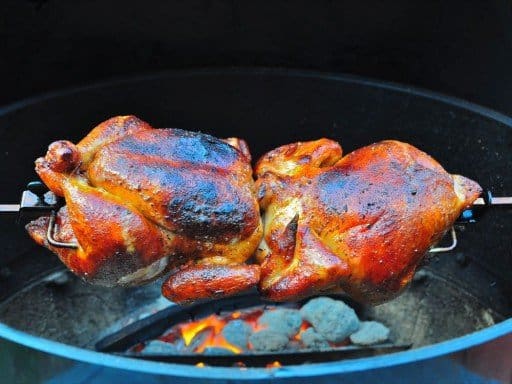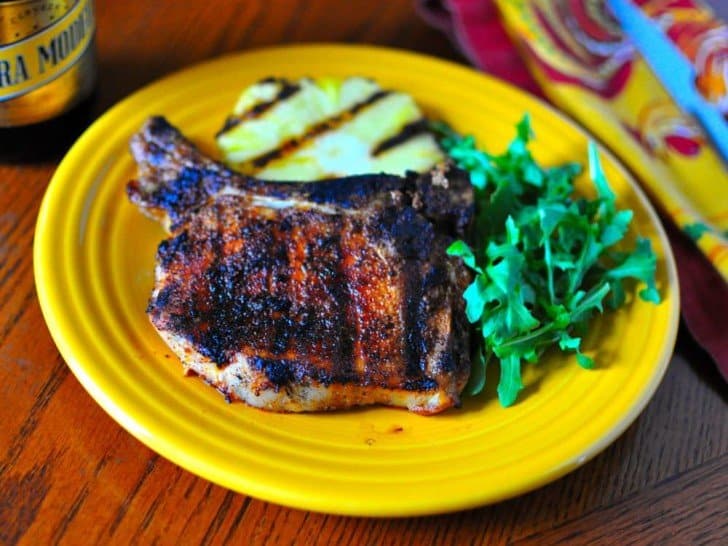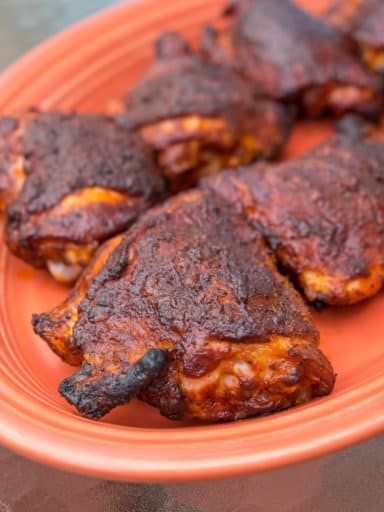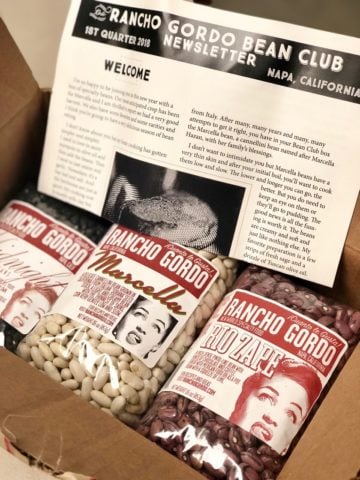
A question from reader Brian: “Why does every recipe I see for grilling rubs contain so much brown sugar, which burns nearly immediately on the grill? It doesn't seem to add any real sweetness that I can sense, in the same way that I can tell where the salt, cayenne or paprika influences the taste. Seems odd to think that burnt sugar would be something I'd want to add to my ribs or chicken, and that the sugar is better left to sauce that you add after cooking.”
I got this question from reader Brian (by way of my old friend Geoff) in a Facebook message. My reply to him turned into a rant, and then this post. I’ve warned against sugar and grilling in a couple of recipes, but never put my thoughts in one place on the blog.
So, here’s my response:
Brian, you’re right - grilling rubs with sugar in them are not a good idea.
Sugar will burn, and I try to avoid it in rubs that are going over direct heat. (Though, now that I think back, I may occasionally use a little, especially with pork.)
Why is it in so many rubs? Because sugar is one of the main parts of the "Barbecue" flavor profile. If you're doing traditional low-and-slow barbecue, you're staying below the temperature where sugar burns. (Somewhere between 275°F and 300°F, if I remember right). So, in traditional barbecue, sugar is a common ingredient. (Sweet rub, sweet sauce, etc…) But when you take those rubs to the higher-heat grilling side of things...it burns, and quickly.

Like I said, I try to avoid it in direct heat recipes, but I will use it occasionally with indirect heat recipes in rubs and brines. I find that a little sugar helps the flavor of pork, which can be kind of bland without a pick-me-up from sugar and salt. (The same goes with boneless, skinless chicken breasts - they need something to give them some flavor).
Also, I may be used to the flavor of a little burned sugar in the rub - I don't notice it. But...where it really bothers me is with barbecue sauce. The "Soak the chicken in sauce, toss it on the grill" approach results in burnt skin and raw chicken meat. That's why I'm careful to add my barbecue sauce at the end of a cook. I brush it on during the last ten to 15 minutes of cooking (with indirect heat) to give it time to tighten up, but not so long that it will burn. With direct heat, I'll brush with sauce, flip, brush with sauce again, then get it off the grill. I want a little caramelization, not something that looks like volcanic ash.

Cook to your own tastes
If you don't want sugar in your rubs, leave it out! Adjusting recipes to your own taste is always a good idea. (Especially if you don't notice the flavor of the sugar to begin with.)
One more comment, then I'm done - if you're grilling on a weak gas grill, a little sugar may be a good thing. I've grilled on some horribly inefficient grills in my day, where the grill barely has enough heat to cook, and forget about searing. (Think just about any grill you could buy at your grocery store for $200.) On those kinds of grills, sugar helps with browning and grill marks.
Hope this helps...
Mike
What do you think?
Questions? Other ideas? Leave them in the comments section below.
Related Posts
Rotisserie Grilling: Barbecued Chicken - Dad Cooks Dinner
What does “Season to Taste” mean, exactly? - Dad Cooks Dinner
_Enjoyed this post? Want to help out DadCooksDinner? Subscribe to DadCooksDinner via eMail or RSS reader, recommend DadCooksDinner to your friends, and buy something from Amazon.com through the links on this site. Thank you._





greg says
MSDS sheets on Granulated and Turbinado sugar shows them melting (burning) at around 350F and higher.
Mike Vrobel says
Thanks for the detail!